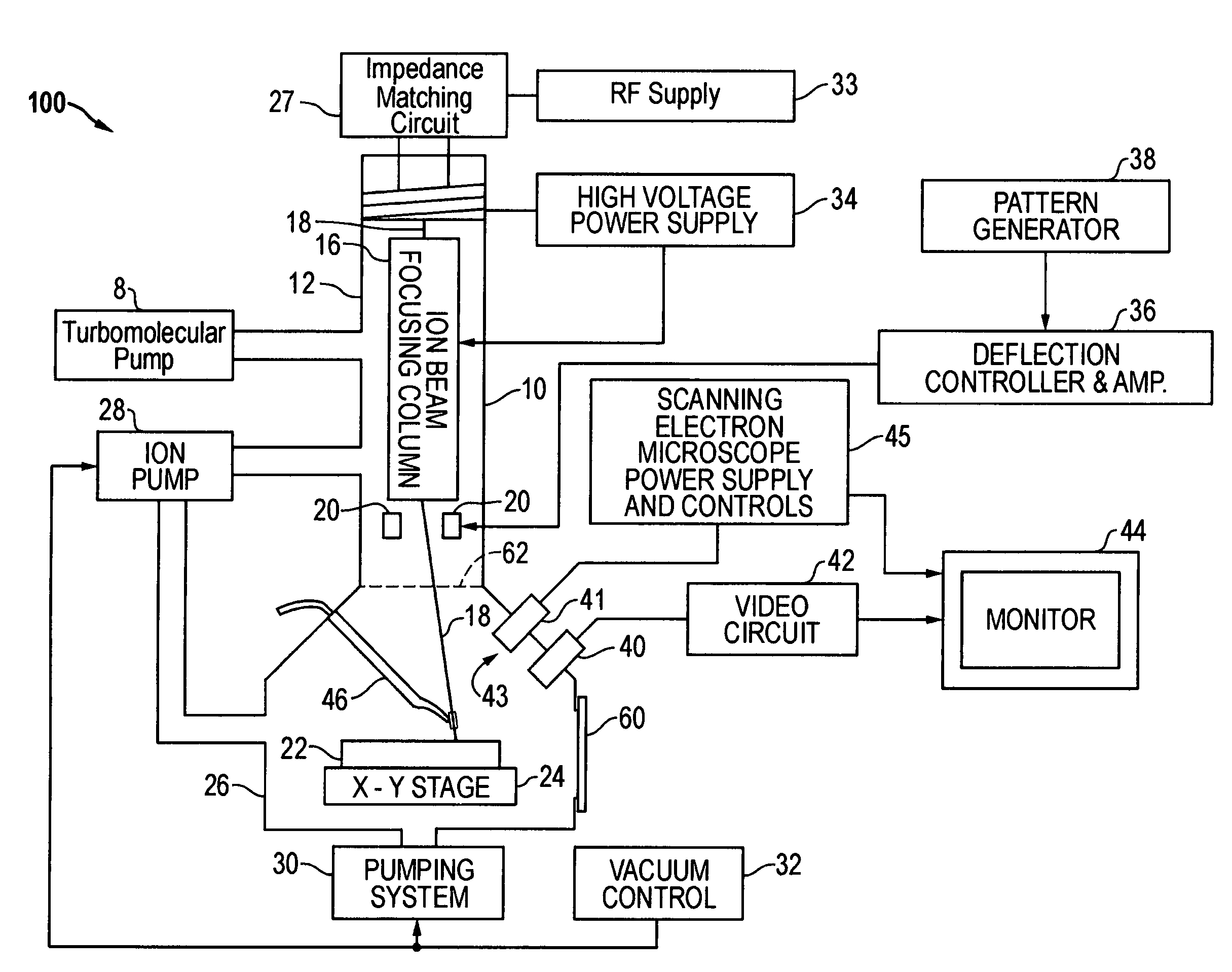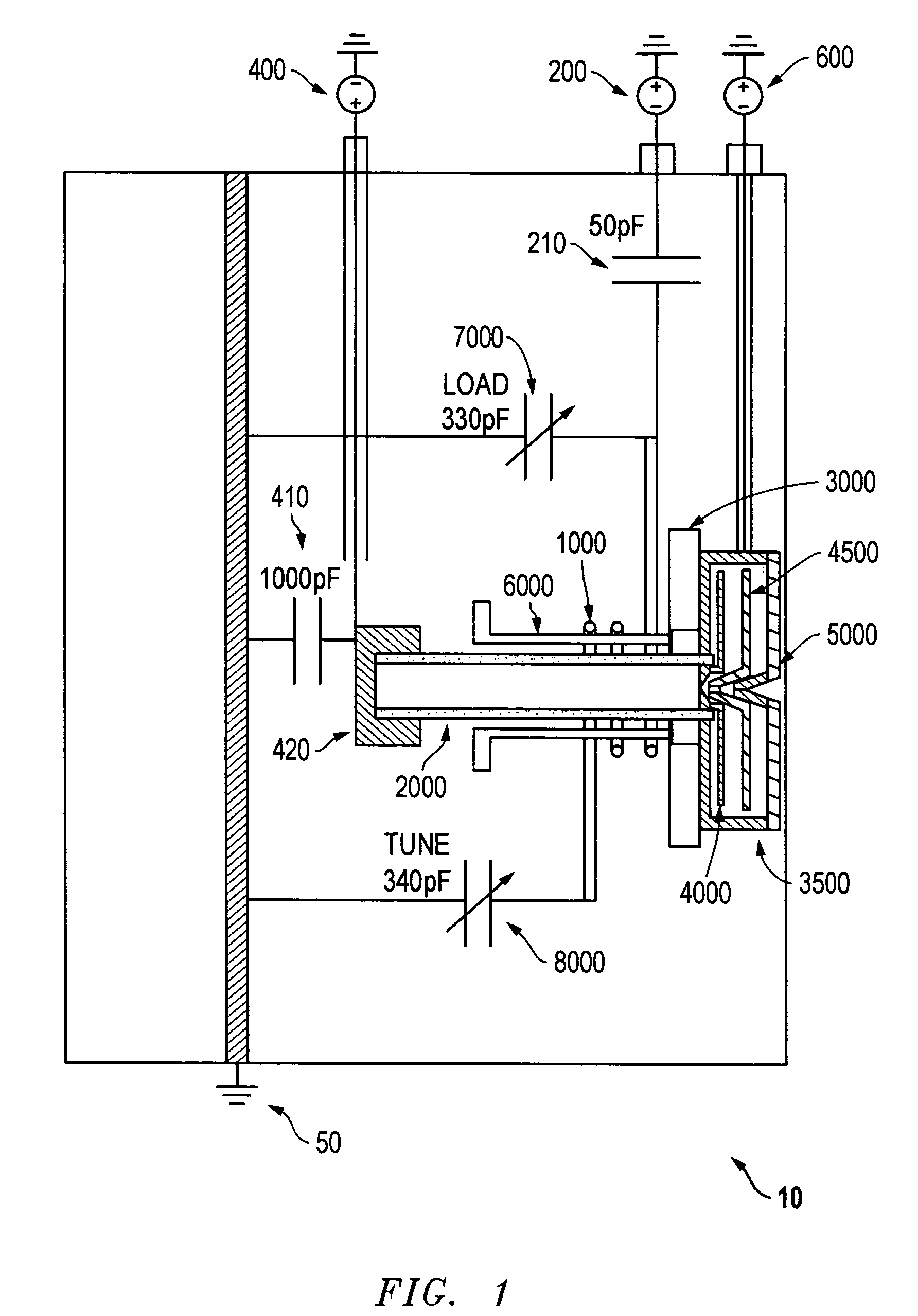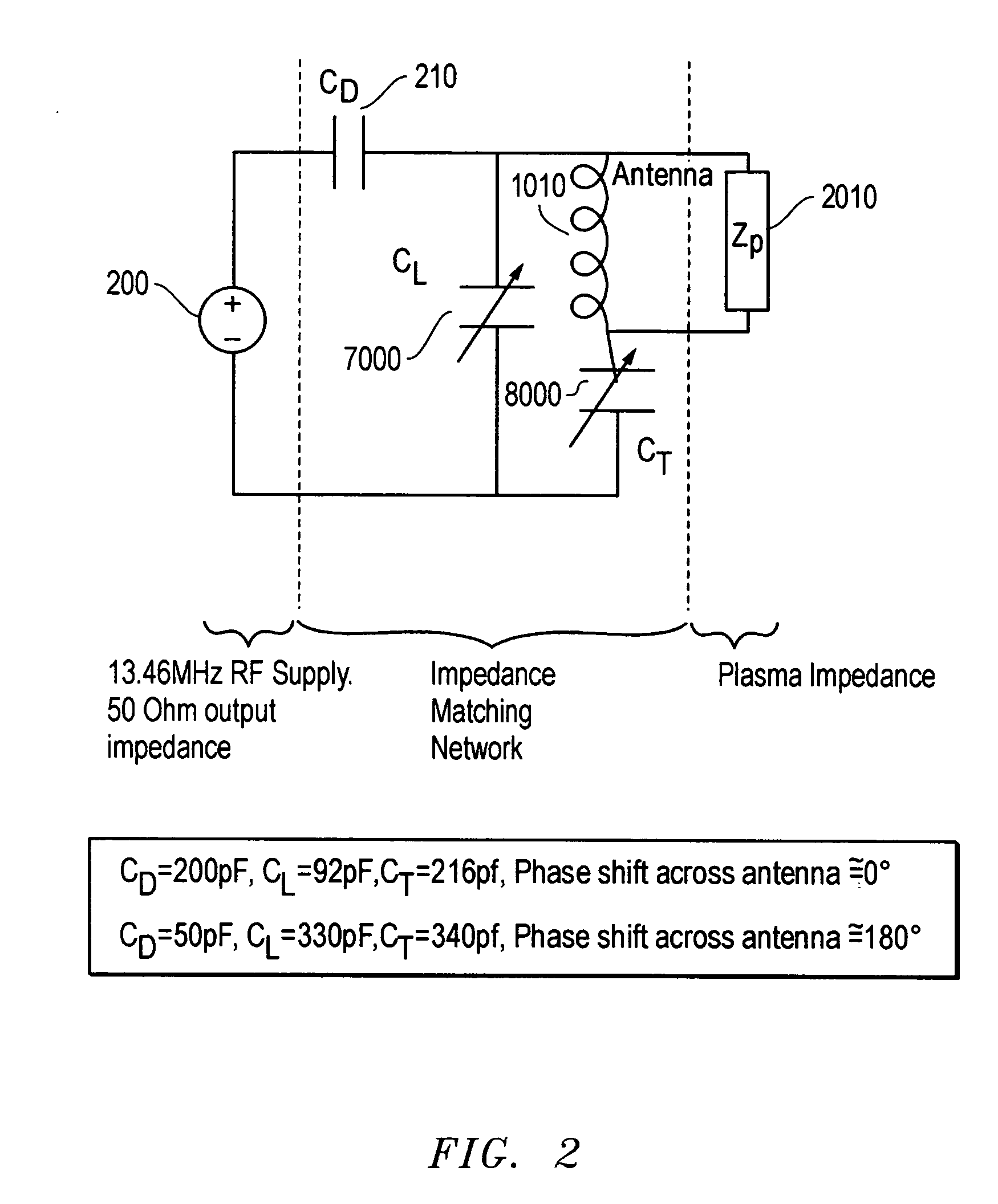Magnetically enhanced, inductively coupled plasma source for a focused ion beam system
a plasma source and focused ion beam technology, applied in the direction of optical radiation measurement, particle separator tube details, instruments, etc., can solve the problems of reducing the efficiency of laser beams, and reducing the processing time in production applications and laboratories, so as to eliminate the effect of plasma potential modulation and high ion density
- Summary
- Abstract
- Description
- Claims
- Application Information
AI Technical Summary
Benefits of technology
Problems solved by technology
Method used
Image
Examples
Embodiment Construction
[0020]FIG. 1 shows a diagram of an embodiment of an ion plasma source 10 according to the method of the present invention. A coil 1000 is capacitively coupled by impedance 210 to an RF source 200. Note that the capacitances shown in FIG. 1 are nominal values that readily can be selected by one of skill in the art according to the frequency of operation of the coil, as will be described further below. Coil 1000 is preferably a multi-turn coil that wraps around a dielectric plasma tube 2000 so that the axis of the coil substantially coincides with the axis of chamber 2000 and the beam axis.
[0021]When driven by source 200, coil 1000 forms a helical RF antenna. Driving the coil with an RF source can impart a time-varying potential to the plasma, due to capacitive coupling. That is, the coil can produce a radial electric field that modulates the plasma. This is undesirable because it creates a spread in the beam energy, resulting in chromatic aberration. However, in a preferred embodimen...
PUM
| Property | Measurement | Unit |
|---|---|---|
| energy | aaaaa | aaaaa |
| energy spread | aaaaa | aaaaa |
| energy spread | aaaaa | aaaaa |
Abstract
Description
Claims
Application Information
 Login to View More
Login to View More - R&D
- Intellectual Property
- Life Sciences
- Materials
- Tech Scout
- Unparalleled Data Quality
- Higher Quality Content
- 60% Fewer Hallucinations
Browse by: Latest US Patents, China's latest patents, Technical Efficacy Thesaurus, Application Domain, Technology Topic, Popular Technical Reports.
© 2025 PatSnap. All rights reserved.Legal|Privacy policy|Modern Slavery Act Transparency Statement|Sitemap|About US| Contact US: help@patsnap.com



